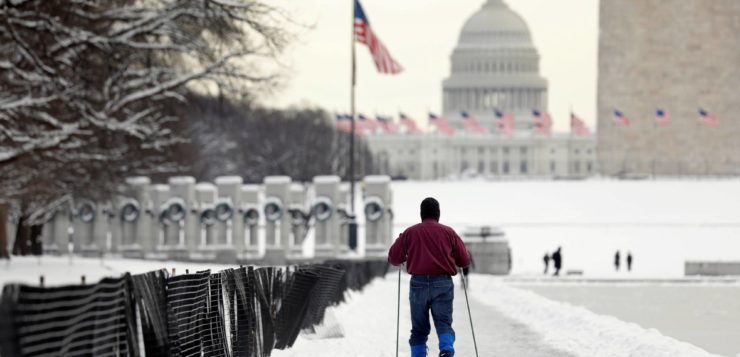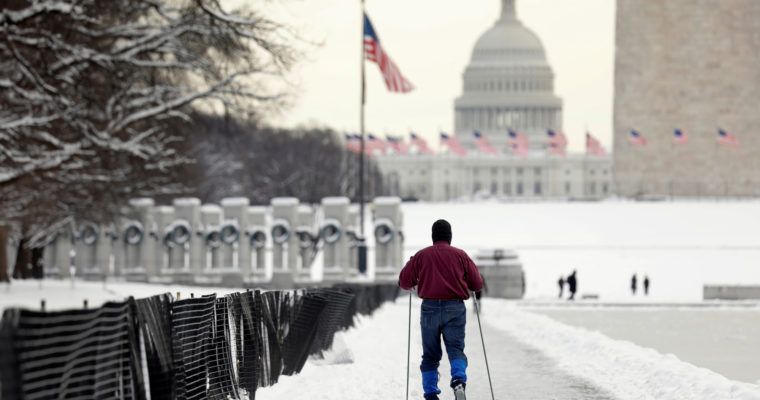As many as 800,000 government workers didn’t get paid on Friday. While they will eventually receive their checks once the shutdown concludes, many of them will have to go into debt to pay bills and mortgages. Others are already at risk of losing their homes or cars completely. US President Donald Trump seems to be undeterred by the impact of the longest government shutdown in history.
Lives Are at Risk
Zillow estimates the shutdown could be affecting as many as 39,000 mortgages held by government workers, but it doesn’t stop there.
One Department of the Interior worker, Mallory Lorge, suffers from diabetes and now can’t afford a $300 copay for insulin. When her blood sugar levels went out of control last week, she ignored it, trying to conserve her last two vials of insulin for an absolute emergency. Lorge said:
I can’t afford to go to the ER. I can’t afford anything. I just went to bed and hoped I’d wake up.
The Wisconsin worker recently got married, and despite her husband working overtime, they estimate they can only survive financially for another 3-4 weeks. Lorge says she loves her job but:
That the government has put us in this position is like a punch in the gut.
Some families have more than one earner affected by the shutdown:
We are a 2-fed household & both furloughed (going on 2+ wks now!). Our agencies protect clean air & water for Americans, and promote gender equality & women’s empowerment in developing countries around the world. We are sad to have our work caught up in this political stunt.
— Fauxhawk (@BonnieKRobinson) January 6, 2019
US Workers Live Paycheck to Paycheck
An estimated 78% of US workers live paycheck to paycheck. That means they don’t have savings and are immediately using credit cards and going into debt to try to get through the shutdown.
Zillow senior economist Aaron Terrazas said:
Many federal employees rely on each and every paycheck to cover critical expenses, including housing. In many parts of the country, housing affordability is already stretched and a single missed payment can begin the long process toward foreclosure or eviction – which has long term impacts on an individual’s finances and long-term economic prospects.
These employees may see their credit downgraded:
#ShutdownStories It’s not only about paying bills, almost 1 miion employees and along with contractors are having their credit degraded so they will be paying more for everything they purchase for years to come.
— Julie Branom (@JulieBranom1) January 5, 2019
Even the US 10% of workers earning over $100,000 are either unable to save or save very little.
This Twitter user’s colleagues are likely some of the higher earners affected, but they are still struggling:
💔heart broken: highly respected scientist colleagues literally discuss a bake sale (selling homemade baked goods) to make ends meet during #GovernmentShutdown. Rocket scientists, people. Selling baked goods. To pay their bills. 💔
— Dr Heidi B. Hammel (@hbhammel) January 12, 2019
One federal attorney is already in rent arrears:
Today, is a shitty day for me. This government shutdown is hitting us & it’s expected to get worse. We received a letter from our apartment complex that our rent was in arrears.
Regardless what people think, we aren’t bathing in money. I blame Trump/McConnell.#shutdownstories pic.twitter.com/3rsl8I8Kmp— Pissed Off Furloughed Fed. Attorney. (@JammedBus) January 14, 2019
America’s Vulnerable Rely on Government Services
It’s not just furloughed government workers at risk of losing their homes. Donald Trump’s demand for nearly $6 billion to build a border wall, without any concession, is threatening seniors, veterans, and very low-income families — a point on which prospective presidential candidates such as Sen. Elizabeth Warren have already begun to seize.
Up to 85,000 seniors, disabled Americans, and low income families are already at risk of losing their homes because of the #TrumpShutdown. That’s just plain cruel – it’s time for Republicans to stop playing politics and re-open the government. https://t.co/W3i8cUiH7d
— Elizabeth Warren (@SenWarren) January 13, 2019
Between 70,000 and 85,000 extremely vulnerable people and families are under a program called Section 8 Project-Based Rental Assistance. Many could see their rental contracts expire during the shutdown with no government staff available to address the issue. Already, 1,150 contracts between the U.S. Department of Housing and Urban Development (HUD) and private landlords have expired.
There are also serious implications for federal government provided services including the coast guard, air traffic control, and airport security. Though many of these employees are working, they are working without pay.
These key workers need their minds focused on their jobs, not to be worrying about paying their bills. Some may even look to change their careers to protect against this situation in the future.
Let’s not forget the government shutdown also affects border security staff.
The Wider Economic Impact of the Government Shutdown
S&P Global Rating’s Beth Ann Bovino has already predicted that the shutdown, if it continues much longer, could cost more than Trump wants for the wall:
We estimated that this shutdown could shave approximately $1.2 billion off real GDP in the quarter for each week that part of the government is closed. That may seem like pennies for the world’s biggest economy, but it means a lot to those workers trying to cover their household costs without their paychecks.
One report recently analysed the spending of affected government workers during a prior shutdown, finding that workers could be cutting their household spending by as much as 20%, thus creating an economic hurdle further along in 2019. This reduction in spending will impact not just retailers but also service providers of childcare and the like.
Some workers may even look to cash in retirement, or other long-term savings programs, permanently destroying a long-term financial support.
Though historically the stock markets appear to ignore government shutdowns, this one is now the longest in history. Yet President Donald Trump and his Democratic opponents are nowhere near a resolution.
Disclaimer: The views expressed in the article are solely those of the author and do not represent those of, nor should they be attributed to, CCN.
Featured Image from REUTERS/Kevin Lamarque








